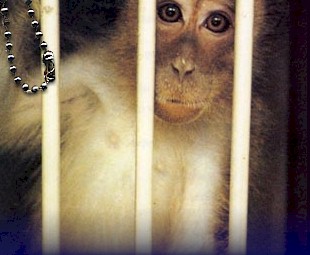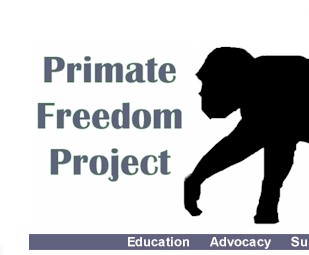






|
||||||||||||||||||||||||||||||||||||||||||||||||||||||||||||||||||||||||||||||||||||||||||||||||||||||||||||||||||||||||||||||||||||||||||||||||||||||||||||||||||||||||||||||||||||||||||||||||||||||||||||||||||||||||||||||||||||||||||||||||||||||||||||||||||||||||||||||||||||||||||||||||||||||||||||||||||||||||||||||||||||||||||||||||||||||||||||||||||||||||||
A Squirrel Monkey Breeding and Research Resource: Department of Comparative Medicine -- University of South Alabama Richard R. Yeoman recently announced the preliminary results of one of his projects. He says, "Penile vibratory stimulation yields increased spermatozoa and accessary gland production compared with rectal electroejaculation in a neurologically intact primate. " In the same report he writes, "Penile vibratory stimulation (PVS) has recently emerged as an alternative to rectal probe electroejaculation (RPE) and more invasive testicular procedures. Comparison of the stimulatory procedures in [human] subjects is not ethically possible due to the discomfort involved with electroejaculation." This facility is a major breeder of squirrel monkeys, as its name implies, but it also keeps Cercopithecus mitis or blue monkeys, a type of guenon, which are all singly caged; owl monkeys; and Japanese snow monkeys, which are also individually housed. The director, Christian R. Abee, is attempting to induce ovulation in immature pre- pubescent squirrel monkeys. This is child abuse, and it is only the federal prejudice against monkeys which keeps him out of jail. But times are changing. Late 1993 was marked by revelations that hundreds of nonconsenting Americans had been used in radiation tests that began in the 1940s and continued much longer. The full facts of these experiments are not yet known. Earlier in the year, the National Academy of Sciences blew the lie off World War II chemical weapons experiments involving 60,000 American GIs, including at least 4,000 used in gas-chamber experiments that left many permanently disabled. For nearly 50 years, the victims kept their secret, having been told that if they revealed the military experiments, they could be charged with treason. These examples and others like them--the Pentagon's hallucinogen
experiments (1950-1975) and the Tuskeegee syphilis experiments (1932-1972)--suggest
that researchers can all too easily find themselves on the wrong
side of ethical boundaries. If laws were in place to protect monkeys from similarly cruel experimentation, secret research on humans would be far less likely. But the same people who funded and supported the use of humans fund and support the use of animals in facilities such as the University of South Alabama. We cannot have it both ways. So long as we continue to reward, or simply allow, Richard R. Yeoman to shove devices into monkeys' anuses them we will forever need to look over our shoulder in case the government should come for us. Some people may argue that monkeys and humans are so different that ideas such as "well-being" and "psychological distress," but the researchers themselves do believe that these terms apply to the animals they torture, and this belief makes their actions morally, if not criminally, reprehensible. Consider their own words: "Physical comfort of the animals is important in reducing stress and promoting the well-being of colony members." This is important when your major goal is to sell monkeys to other labs to abuse. Squirrel monkeys are commonly used in addiction experiments. "Psychological distress that is caused by an experimental protocol may require the removal of the animal from the study . . ." or it may not, if distress is being studied or contact with other monkeys is not being allowed as part of the research protocol.. These people are dangerous and capable of much villainy. Watch out for them: Christian
R. Abee Speak
out.
U.S. Senator,
Home Page | Our Mission | News |